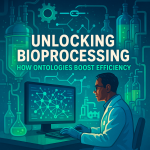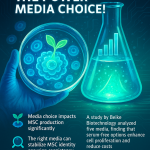🔍 This approach enhances understanding of the Gibbs-Donnan effect, crucial for monoclonal antibody manufacturing.
💡 With this model, researchers achieved significant material savings and reduced processing time.
📊 It uses data on antibodies’ biophysical properties to predict concentration shifts accurately, offering practical insights for bioprocess optimization.
Introduction:
In recent advancements in bioprocessing techniques, machine learning (ML) is emerging as a powerful alternative to traditional experimental approaches. A recent study conducted by scientists in Japan has harnessed explainable machine learning to effectively predict the distribution of charged antibodies across filter membranes, a critical factor in monoclonal antibody manufacturing processes.
- Machine learning serves as a replacement for mechanistic models and traditional laboratory experiments, specifically in understanding the Gibbs–Donnan effect related to antibody distribution across filter membranes.
- The semi-permeable membranes allow for the passage of smaller excipients while retaining larger antibodies, leading to significant shifts in the distribution of these molecules.
- The application of explainable ML has led to notable process improvements, including material savings and reductions in development time, potentially optimizing manufacturing workflows.
- The ML model employs eXtreme Gradient Boosting and several molecular descriptors, yielding predictions with less than 5% error concerning concentration shifts caused by Gibbs–Donnan effects.
- Future applications of the model are being developed to include different pH conditions, enhancing its relevance across various bioprocessing scenarios.
Conclusion:
The study demonstrates the potential of machine learning in improving monoclonal antibody manufacturing by providing valuable insights into antibody distribution across filter membranes. With ongoing developments aimed at expanding model capabilities, including pH variations, the approach may further streamline bioprocessing protocols and substantiate the role of ML in biomanufacturing innovations.







